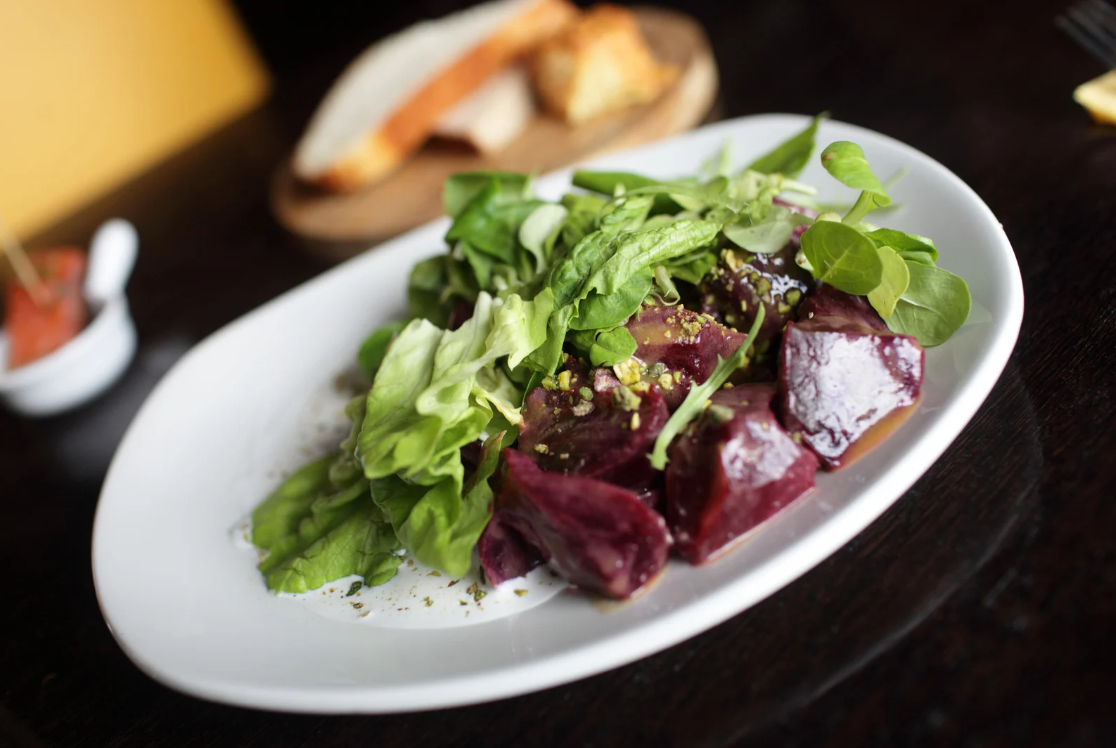Roasted Beet Salad with Pumpkin Seeds

Ingredients
- 1 kg fresh whole beets
- 1/4 large onion
- 2 tbsp olive oil
- 1 tbsp honey
- 1 tsp Dijon mustard
- 2 tbsp lemon juice, freshly squeezed
- 1/4 cup pumpkin seeds (toasting optional)
- Generous pinch of salt
- Baby spinach (optional)
Instructions
- Preheat oven to 450ºF. Peel beets; cut into batons about 3 inches long and ¼ inch thick. Set aside beet greens for serving (if purchased in tact). Toss beets and onion with olive oil; place on a cookie sheet. Roast for 20-25 minutes, stirring occasionally, or until onion is brown tipped. Cool to room temperature.
- Stir honey with mustard in a medium bowl until combined; slowly whisk in lemon juice and salt. Add beets and onions, including any liquid; gently toss to coat.
- If making ahead, cover and refrigerate salad for up to 2 days; bring to room temperature before serving. Serve on a bed of tender beet greens or baby spinach generously scattered with pumpkin seeds.
Notes
Recipe adapted from Food & Drink Magazine
Tried this recipe?Let us know how it was!